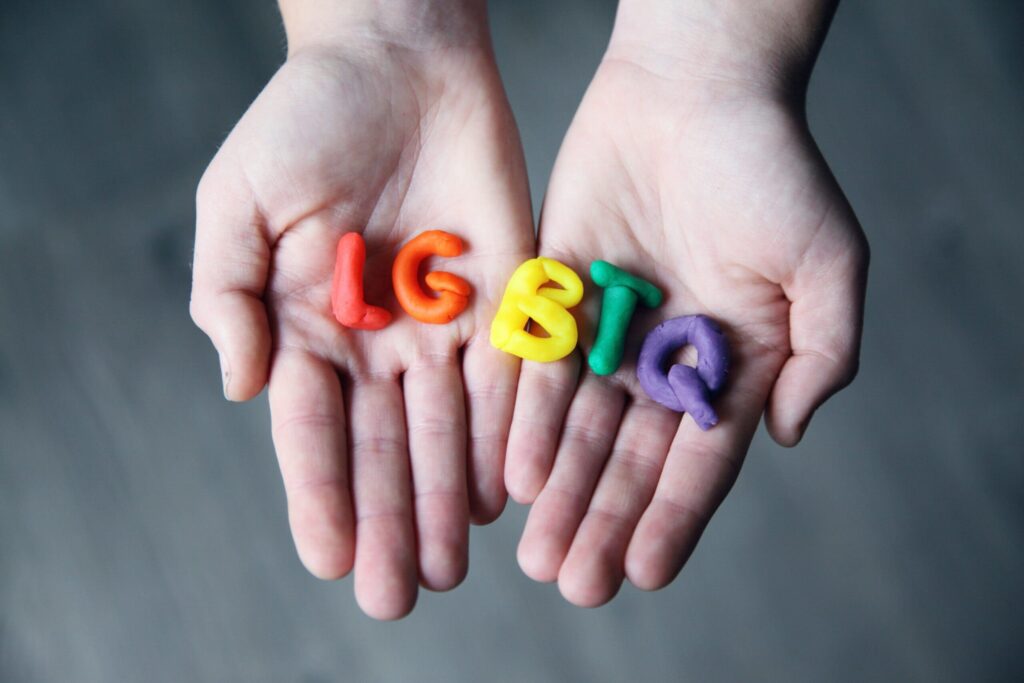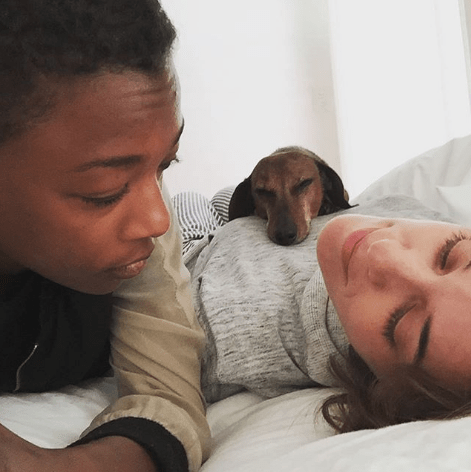Coming out of the closet is a different experience for everyone. While some people may be surrounded by supportive LGBTQ+ allies, others may face more risk around expressing their true identities. In anyone’s circle, there could be some people like close friends who are sure to be accepting, and other people like family members who are not as open-minded.
Parents, in particular, differ for everyone, and for many, they may be a harder group of people to come out to. Although coming out to parents can sometimes be difficult, it can ultimately lead to having a better relationship with them. No matter what happens when coming out, you will likely feel relieved that you have finally spoken your truth and have nothing to hide anymore.
The bottom line is that you deserve to live as your authentic self. HER is here to give you advice on how to come out to your parents while supporting your well-being along the way. Keep reading for help on how to come out to your parents, while having your safety as the priority.
Safety First
When coming out to anyone, the number one priority should be your safety. Unfortunately, not everyone is accepting of the LGBTQ+ community, and that can include our family members. If you’re wanting to come out to your parents, make sure it is a safe environment to do so.
Some things to consider when figuring out if a situation is safe to come out in are:
- Have they expressed their views on the LGBTQ+ community before? Make sure you know their true views on being gay and listen to how they talk about LGBTQ+ people.
- What is the worst-case scenario? If there’s a chance this conversation could lead to an unsafe situation, you may want to re-think coming out until you know you’ll be safe from harm.
- Do you have a backup plan? Having a backup plan is a good idea if you’re dependent on your family’s assistance. Think about backup housing, finances, food, etc. if you think your parents could have a negative reaction.
- Can you trust them to keep the information private? If you’re wanting to keep your orientation between you and them, think about if you can really trust them to keep it to themselves.
- How would a negative reaction affect you? Prepare yourself for negative reactions and how they could affect your mental and emotional wellbeing. Ask yourself if it’s worth those potential consequences.
At the end of the day, you have the right to choose who you do and don’t come out to. If you believe your family won’t be supportive or are afraid of their reaction, you don’t have to tell them. There’s nothing wrong with withholding this information, and you should only come out when you feel ready and safe to.
You can also choose to reject the idea of having to “come out” in a heteronormative society where you’re assumed straight unless otherwise announced. Whatever you decide, remember that your safety should come first, and you deserve to be supported by your loved ones.
Why You Should Come Out
If you are in a safe environment to do so, there are lots of benefits to coming out. Expressing your true identity can be great for your mental health. For some, coming out can feel like lifting a huge weight off their shoulders. Finally, they’re able to live as their authentic selves and not keep anything hidden. Feeling like you’re repressing something, on the other hand, can be harmful to your mental wellbeing. You deserve to feel free to be your authentic self. Remember that if people are not supportive of you, then maybe they don’t deserve to be a part of your journey.
Other benefits of coming out include reduced stress, less anxiety, growing closer within your relationships, increased self-esteem, and being able to find your community. There’s also the perk of helping others become more open-minded to supporting LGBTQ+ people. Some people just haven’t had much exposure to queer people, but when a loved one comes out as queer, it can positively change their perception of the LGBTQ+ community.
How to Come Out
Coming out to others, including to your parents, can be challenging. You may not know what to expect, but if you are sure that it’s safe to tell your parents your sexual or gender identity, it can also feel like a huge relief.
There’s no right or wrong way to come out, but here are some steps you can take when approaching the conversation:
- Read the Coming Out Handbook by The Trevor Project.
- Build a support system. Make sure you have people who support you that you can go to if things don’t go as planned.
- Come out to supportive people first. Practice coming out to people who you know are LGBTQ+ allies before coming out to your parents.
- Gage their views. Ask test questions to see what they think about LGBTQ+ people, such as asking their thoughts on a queer celebrity or LGBTQ+ issue.
- Plan ahead. Plan on how you will come out to them, such as when, what setting, and what you want to say.
- Decide how to tell them. In-person, text, email, over the phone, or writing a letter are all options for coming out.
- Set the tone. You can tell people how to react by setting the tone of your news. By being confident in your identity and sharing enthusiastically, for example, you’re setting the tone that this is a positive thing and they should be supportive.
- Have a supportive sibling. Bringing a supportive sibling or family member with you can help you feel less anxious and help your parents be supportive too.
- Prepare for reactions. It’s important to prepare for any reaction when coming out.
Many LGBTQ+ individuals share the same experience of having to come out many different times throughout their lives. Keep in mind that when you choose to come out, it will likely only be the first of many times!
What if the reaction is bad?
Unfortunately, coming out doesn’t always get the reaction we hope for. While many LGBTQ+ folks do have supportive family members, some aren’t so lucky. Remember that even if your parents have a negative reaction initially, their views are subject to change as time goes on. People can learn to be more accepting over time and grow to appreciate everything that makes you you.
However, it’s also important to keep in mind that you absolutely deserve to be surrounded by people who support and uplift you! Sometimes those people we choose to be in our lives add more value than our blood-related family. If people aren’t accepting of who you are, that is a reflection of them, not you.
It’s good to have a backup plan in case you do end up feeling unsafe. This includes having a plan for housing, finances, food, transportation, and anything else you may have relied on your parents for. For more resources on assistance for LGBTQ+ youth, visit the ACLU resource library.
Educate your parents with these resources
If your parents need an extra push to be more accepting of your queerness, help educate them more on the LGBTQ+ community and what queerness means to you. Here are some excellent resources for parents with LGBTQ+ children:
- Strong Family Alliance’s Parent Guide – A guide for parents whose kid(s) came out that can help them approach the situation with acceptance and support.
- Family Acceptance Project – This organization provides many resources for promoting safe family environments for LGBTQ+ kids.
- Freed Hearts – For parents with Christian or Evangelical backgrounds, Freed Hearts can help them understand the importance of acceptance from a faith perspective.
- Lead With Love – A documentary for parents to better understand their LGBTQ+ kid(s).
- CDC’s LGBTQ+ Youth Risks – This resource can help parents understand the dire need for queer youth to have accepting family environments- and the negative health effects of unaccepting ones.
Find your people with HER
You deserve to find your people who accept and love you for you. HER is the dating app for connecting LGBTQ+ women and nonbinary folks. Find your chosen family today with the HER app.






